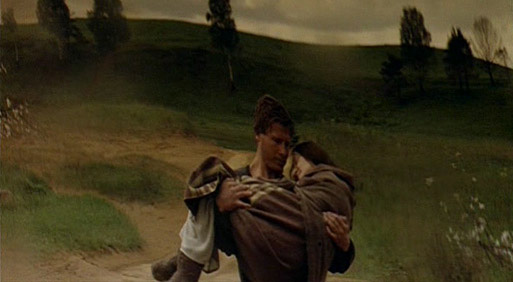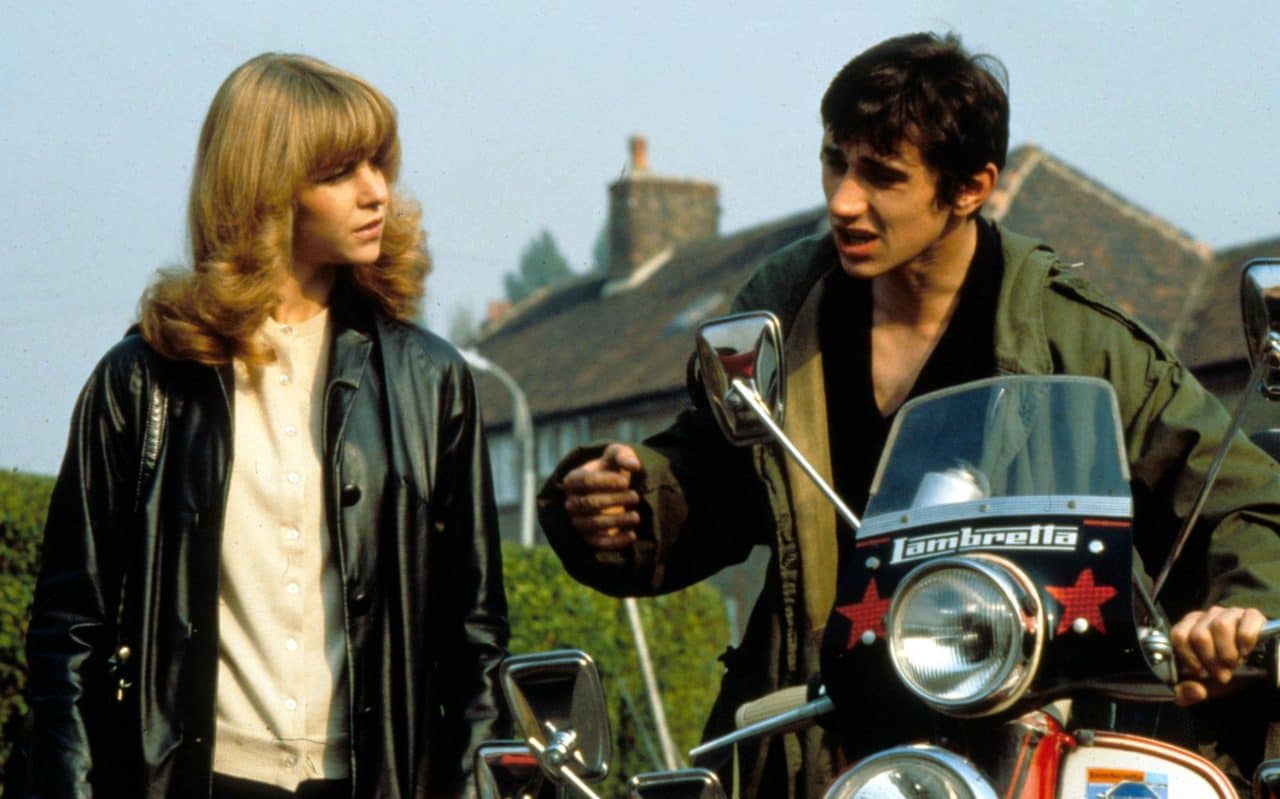Damage (1992)
Directed by Louis Malle
* * *
Dr. Stephen Fleming (Jeremy
Irons) is at a reception when his gaze crosses paths with that of Anna Barton’s
(Juliette Binoche), and immediately there is no questioning that they have
fallen for each other. How unfortunate that theirs is a romance that is forbidden:
Stephen is not only a member of Parliament with the eyes of the UK weighing
down upon him, but also a family man with a wife and two children – even more
complicated that Anna is the fiancée of Stephen’s son. In spite of these
circumstances, they just can’t resist consummation, even knowing the impact
their affair will have. Like a train crash, we the audience can only watch in
dreaded captivation.
I’m going to get my own
personal elephant in the room out of the way, first: I’ve never been sure about
Jeremy Irons as an actor. Once you see Dungeons
& Dragons, you’ll never lay eyes on him ever again without the
slightest chuckle. I will say that here, in Damage
(where he looks like a cross between Pierce Brosnan and Phantom Thread-era Daniel Day-Lewis), he
is plenty reserved and knows to keep himself in check. That said, while his
acting is fine, he doesn’t really add much. As for Juliette Binoche, well,
she’s amazing as always, but I’m also in mad
love with her, so take my remarks with a grain of salt.
In spite of the fascinating
subject matter, Damage still kind of
feels like it just dwells from scene to scene, occasionally stopping for
reserved yet very titillating sex between Irons and Binoche, and the final act
becomes almost laughably melodramatic. What the film may have lacked in plot
progression, it made up big time in
implication and insinuation. Damage masterfully
implies vulnerability and impending disaster throughout. It is always very subtle and never once forced
(thanks primarily to the brilliant mise-en-scene). I was also quite taken by
the film’s score, and it all made sense when I saw the name: Zbigniew Preisner,
the same man responsible for the masterful scores for various works of
Krzysztof Kieslowski. I didn’t realize until the film had ended that it was
directed by the notable Louis Malle, so I leave you with this: there are
definitely techniques worth taking notes from in Damage, and the overall film is good enough to warrant a watch, but
is probably best left for Malle completionists.
Graduation (2016)
Directed by Cristian Mungiu
* * * 1/2
Romeo Aldea’s (Adrian Titieni)
daughter, Eliza (Maria Dragus), is on the threshold of a better life for
herself – a scholarship to study psychology in a prestigious school in England,
on condition that she aces her final exams. When the film opens, with Eliza’s
test day quickly approaching, Romeo is dropping his daughter off at school.
Later that day, he will find out that Eliza was assaulted in an attempted rape.
Though she evaded the attacker, she is left with an arm in a cast and
traumatized. Romeo is deeply worried about Eliza, not just because of her
ordeal, but because she is so shaken by the incident that it will most likely
affect her performance on her exams, obliterating any chance of her escaping
the dreary existence in contemporary Romania, and Romeo does everything he can
to keep her on the right path, sometimes engaging in illegal activity with
underhand deals and favors.
Written and directed by
Cristian Mungiu, the same man behind the Palme d’Or winning 4 Months, 3 Weeks, and 2 Days, Graduation continues his trend of
exhibiting ordinary and unsuspecting people in extraordinary circumstances in
post-Communist Romania. No exaggeration: right from the start, Graduation exhibits a slow-burn tension
that remains throughout the entire movie, from the broken window that starts
the film to watching a string of impending trouble unspool for Romeo’s noble
yet nonetheless illegal activities – my heart dropped when Romeo is confronted
by investigators at one point in the film.
As tense as Graduation is, it is also just as
thought-provoking on the struggles of being a parent. All this man wants is the
best for his daughter…or perhaps it is something deeper and more selfish? Has
his life become so meaningless that the only chance of noteworthy
accomplishment are those of his daughter? Not exactly unfamiliar territory as
far as narrative is concerned, but Graduation
presents it in such a naturalistic yet striking manner. Though the film’s
final scene feels rushed and anticlimactic, and the overall visual style leaves
too much to be desired (favoring hand-held voyeurism over its own unique visual
style), Graduation is riveting and
tense domestic drama not worth missing.
Toni Erdmann (2016)
Directed by Maren Ade
* * * 1/2
Divorced, and with his
loneliness further rendered by the passing of his dog, the jovial and
joke-loving Winfried (Peter Simonischek) sets out for quality time with his
well-intentioned yet high-strung workaholic daughter, Ines (Sandra Huller).
Though he does get to spend some time with her, she is all-too consumed by her
work complete with phone calls on repeat and outings cancelled due to pressing
work matters. Winfried and his love of practical jokes doesn’t do much to help
the situation, but instead of cleaning up his act, Winfried goes all the way
with practical joking when he adopts the alter ego of Toni Erdmann, a life
coach. Ines protests her father’s antics, but Toni has no idea what this woman’s
talking about, as he is in no way related to her. Whether out of fear of her
reputation being compromised or out of curiosity to see how far this will go,
Ines plays along.
I’d been wanting to see Toni Erdmann ever since hearing of its premise,
as I not only love father-daughter dynamics, but also comedy that is rooted in
deep-human tragedy. The Oscar nomination also further piqued my curiosity, but
the 2.5 hour-plus runtime has made me postpone it time and time again. A lazy
Sunday finally provided me the opportunity, and I must say that my first remark
is on the runtime: in spite of it, Toni
Erdmann is exceptionally well-paced and never once feels like its actual
runtime. It helps that one can’t help but watch the scenario and just wonder
where the hell it’s going to go.
But the true driving force is
in the characters of Ines and Winfried, as they are such strong personalities
that you can’t help but watch them in fascination of their contrast, and the
film’s overall handling of the complex father-daughter dynamic is done
wonderfully – both characters may irritate you from time to time, but you still
really care about both of them. Though the
tail-end of the second act kind of goes nowhere, and the entire third act feels
fairly stagnant with no satisfying kind of rectification (though Ines’s
birthday party is a movie moment I won’t be forgetting anytime soon). All that
said, seeing that embrace between Ines and Winfried (donning a kukeri costume)
brought a huge smile to my face. Overall, maybe not perfect enough to justify its length, but I won't be forgetting Toni Erdmann anytime soon.











